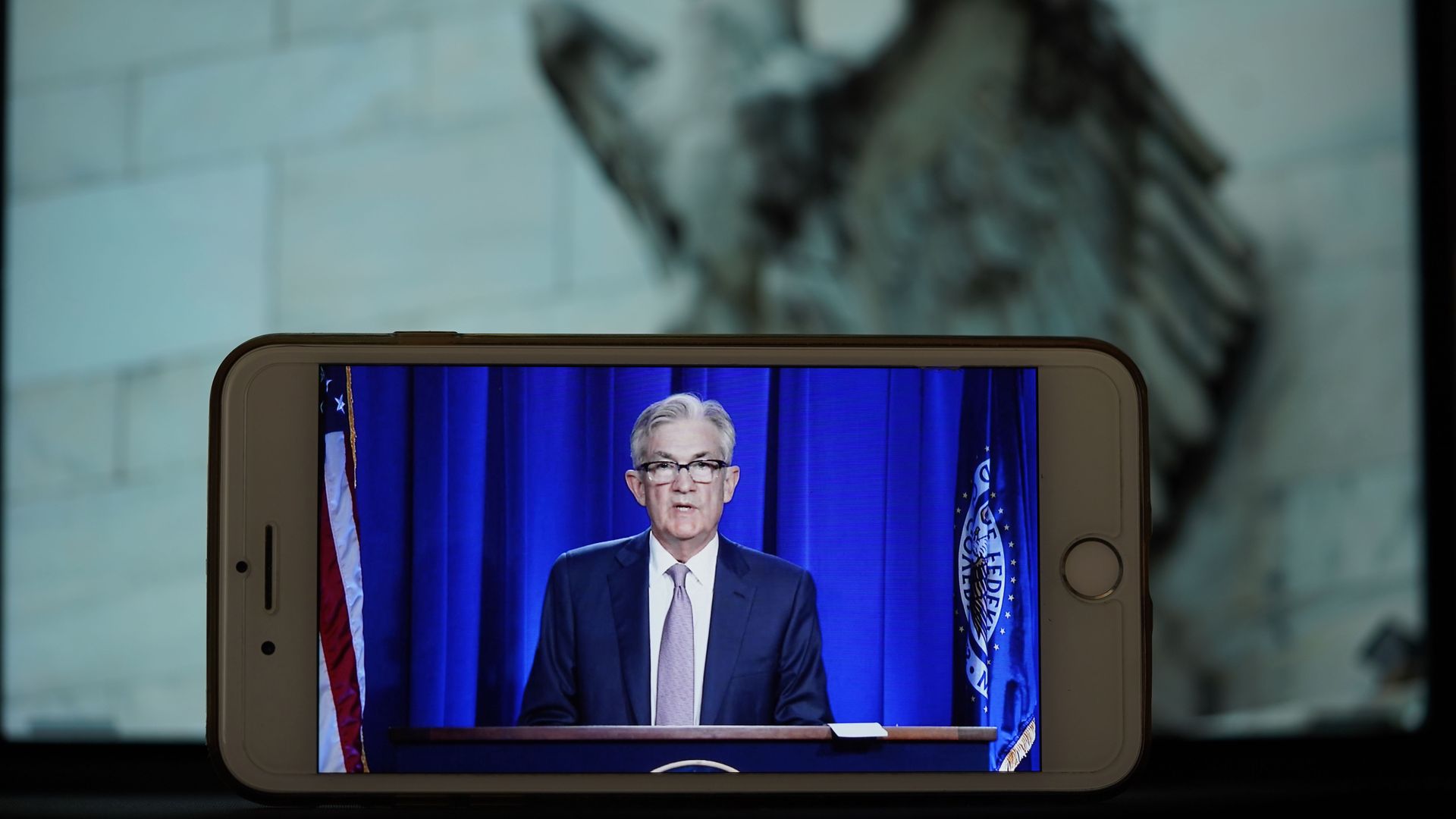Fed chair says tight job market is key to helping inequality
Add Axios as your preferred source to
see more of our stories on Google.

Fed chair Jerome Powell during a virtual press conference last week. Photo: Liu Jie/Xinhua via Getty Images
Fed chair Jerome Powell said Tuesday that pursuing a "tight" labor market is the best thing the central bank can do to address economic inequality in the U.S. during a hearing with the Senate Banking Committee.
Why it matters: With a renewed focus on systemic racism in America, Powell faced more public questions from lawmakers about what it can do to stem long-standing inequality in America.
"A tight job market is probably the best single thing that the Fed can do to support gains by all low- and moderate-income communities, and particularly for minority communities that are heavily representative in those groups. ... Everything we're doing is to try to get the labor market back to where it was in February."— Jerome Powell, in response to a question from Sen. Sherrod Brown (D-Ohio)
The backdrop: Black and Latino workers are often the "first fired, last hired" — meaning, an economic shock hits them first, and only when the economy is nearly fully recovered do they see the most job opportunity. Fears that low levels of unemployment would cause inflation haven't proved true.
- Black and Latino workers have been harder hit by the coronavirus economic slump than white workers.
- The Fed is under new scrutiny for any role its policies have played in exacerbating the divide. Powell has denied the Fed's policies have contributed to racial inequality.
What they're saying: “There’s no doubt more that all of us can do to address these issues, and this feels like a time when people are going to be looking for ways to do more, and we certainly are going to be doing that," Powell said.
- Powell also said racial inequality is a "longer-run weakness in our economy" in response to a question from Sen. Elizabeth Warren (D-Mass).
- This week, the Atlanta Fed's Raphael Bostic — who became the first black (and first openly gay) person to lead a regional Fed bank in 2017 — wrote a letter that said the Fed "can play an important role in helping to reduce racial inequities and bring about a more inclusive economy."
Powell also said the coronavirus impact on the economy can be seen in three stages:
- The initial shock of the shutdown. Powell believes "we may be reaching a bottom."
- The "bounce back" as the economy reopens. We're in the beginning stages of that now, according to Powell.
- The slog. Powell said while large numbers of people will return to work, the economy will be "well short" of where it was before the pandemic because "parts of the economy will struggle to return to old ways of activity" due to the inability to gather in large groups.
Other notes: Sen. Pat Toomey (R-Pa.) asked why the Fed continues to intervene in the corporate bond market, even though there's been improved market functioning since the Fed initially announced it would buy up corporate debt.
- "I don't see us as wanting to run through the bond market like an elephant, doing things and snuffing out price signals. ... We want to be there if things turn bad in the economy or if things go in a negative direction," Powell said.
